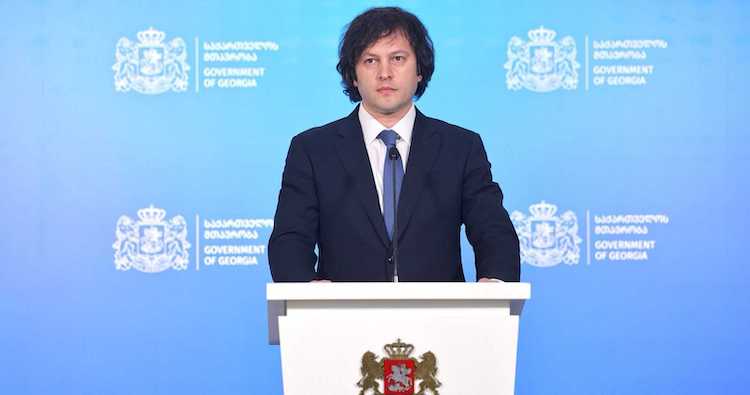Georgian PM: preventing direct, indirect foreign financing of domestic political entities “principally important”

Georgian Prime Minister Irakli Kobakhidze on Friday said it was “principally important” to prevent both direct and indirect foreign financing of political entities in Georgia to “safeguard state sovereignty”. Photo: Gov't Administration
Georgian Prime Minister Irakli Kobakhidze on Friday said it was “principally important” to prevent both direct and indirect foreign financing of political entities in Georgia to “safeguard state sovereignty”.
Financing of political entities through indirect means goes against our laws and the principle of state sovereignty. In democratic countries, political parties can only be funded by domestic sources, and not from foreign entities”, he said.
Kobakhidze claimed there had been “serious deviations” in indirect financing of political subjects before the trend changed after the bill calling for registration of non-commercial legal entities and media outlets in the country as “agents of foreign influence” if they derived more than 20 percent of their funding from abroad was introduced in the Parliament last year.
The bill was dropped in April 2023 amid criticism from domestic NGOs, Georgia’s foreign partners and international organisations who claimed its adoption would hamper activities of a number of organisations and media outlets in the country.
There have been positive trends since [the proposal of the bill], such as a decrease in the volume of indirect financing of political entities, which is very good news”, Kobakhidze said.
The PM also said the new law on the Central Election Commission, which the Parliament passed on Tuesday and involved regulations on elections of the body’s Chair and its members, provided for “breaking the deadlock” that followed the EU-mediated April 19 agreement which resolved a six-month political crisis in the country following the 2020 parliamentary elections and proposed large-scale electoral and judiciary reforms.
Currently, the Commission is facing a dead-end. Its Chair and two members were elected two years ago for a term of six months, but their term of office has been extended because new members have not been elected. This has created a deadlock, which was caused by a clause that was inserted into the April 19 agreement as an act of sabotage”, Kobakhidze alleged.
He also responded to the idea of individuals appointed by the foreign embassies would vet Georgian judges, proposed by the opposition United National Movement party this week, and said it “not only contradicts the current constitution of Georgia, but also directly contradicts the spirit of the constitution, including the principle of independence of justice”.
Vetting is unacceptable for us, based on legal and [...] practical considerations”, Kobakhidze added.
The Georgian PM alleged the proposal was a part of efforts “often used to exercise political control over the [domestic] judicial system”, which he stated was “unacceptable” to the Government. He added the issue had been discussed during his recent visit to Brussels.
 Tweet
Tweet  Share
Share